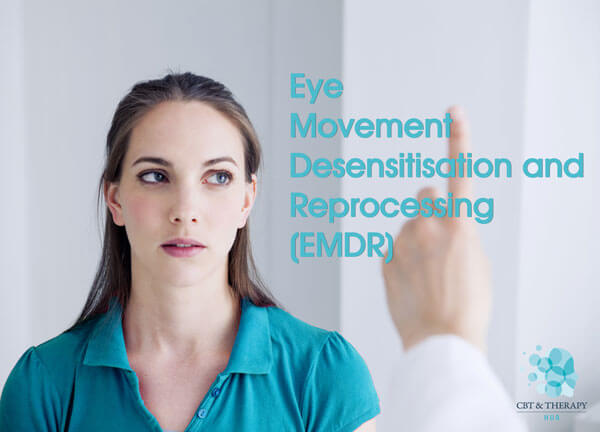It may sound intimidating, but Eye Movement Desensitization and Reprocessing (EMDR) is actually a very straightforward yet powerful therapy.
EMDR can be extremely effective if you’ve had a traumatic experience, especially if you find it difficult to talk about past events. It’s also used to treat people with anxiety, phobias or depression.
In essence, EMDR helps the brain to reprocess distressing memories or flashbacks so that their intensity is reduced.
It’s all about how the human brain deals with thoughts and feelings associated with traumatic or difficult experiences. Feelings such as panic, guilt or anger can often be difficult to process. As a result, small associations or reminders of an event may trigger those feelings.
Sufferers can feel like they can’t control their thoughts or emotions, and that the smallest things can trigger flashbacks and feelings of distress. This often leads to sufferers avoiding work, other people, relationships, and so on.
How does EMDR work?
A key element is the use of guided eye movements. When you move your eyes, you stimulate the right and left hemispheres of the brain, which relate to your emotional and rational sides. Guided eye movements when thinking about difficult experiences can help your brain to process those experiences more effectively.
During EMDR, you will be asked to follow hand movements with your eyes – often side-to-side. At the same time, your therapist will carefully help you to think about your trauma or feelings of distress, and will direct you to replace those feelings with more positive ones.
Is EMDR a serious form of therapy?
If you’re concerned that EMDR is just a ‘fad’, don’t worry. Although it’s relatively new, EMDR is an evidence based practice, meaning that research has been carried out into its effectiveness. You can also read about this therapy on the NHS website.
If you are considering EMDR therapy, ask your therapist if they have undergone EMDR training and are accredited with EMDR Europe.
This article was written by Connect Psychotherapy Practice in Bristol and Bath.

